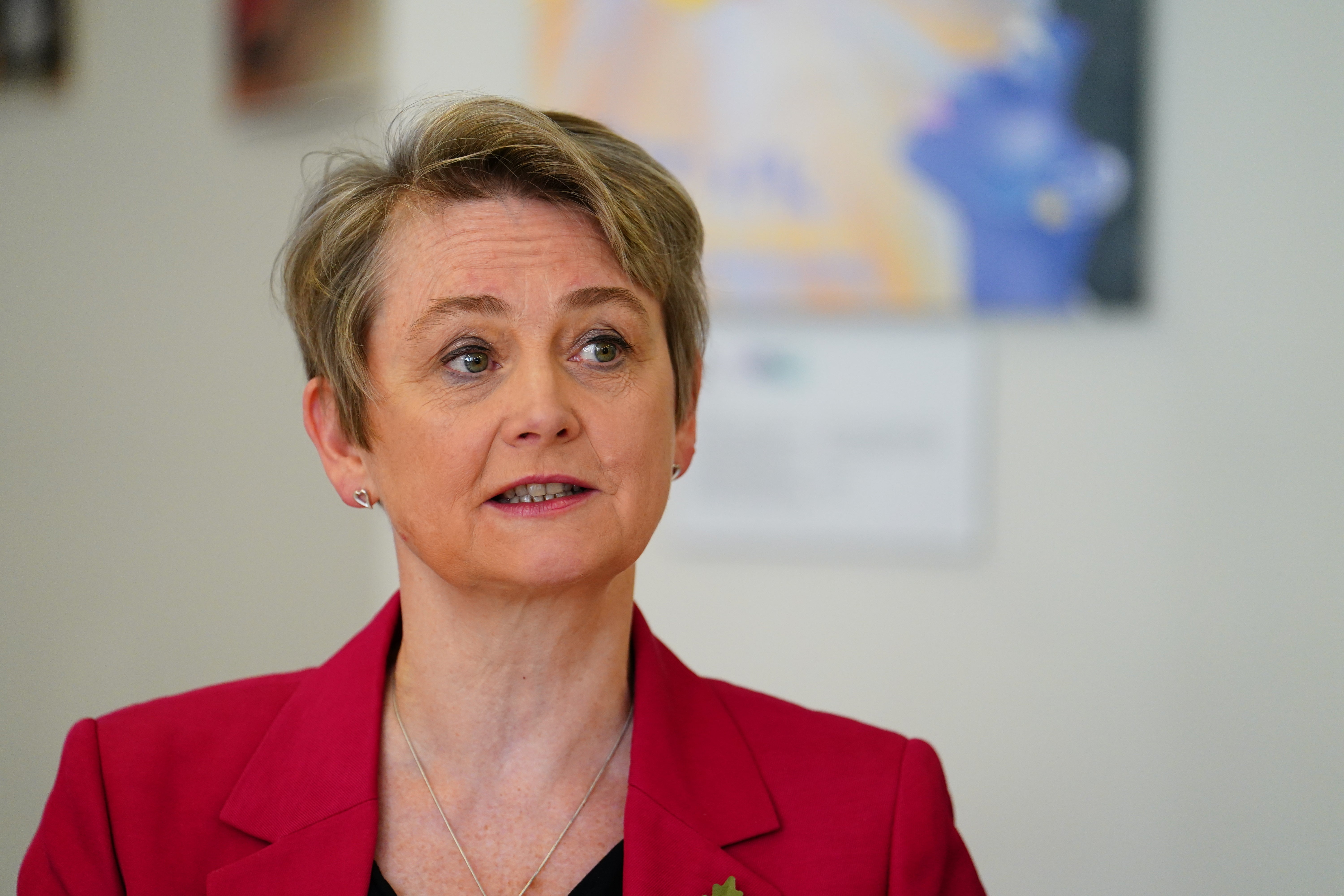
The home secretary has admitted her pledge to halve violence against women and girls (VAWG) in ten years is “ambitious” and the government has not worked out how to measure their progress.
Laying out a string of reforms to overhaul policing at an annual summit with police chiefs on Tuesday, Yvette Cooper said policing is at a “critical juncture” with many forces “buckling under the strain”.
Discussing details of how a new national performance unit will use key data to give the Home Office and police chiefs closer oversight of individual forces, she said the issue of how to measure VAWG is a challenge.
“Let’s be honest, it’s an ambition that I’m not aware any country has set before,” she told the conference in Westminster.
“It’s very ambitious to say we are going to halve violence against women and girls in a decade.
“We’re working at the moment to work out how you measure overall violence against women and girls, how you look at domestic abuse, how you look at stalking, how you look at sexual offences, so that we can have that measure and so that we can see across the country what progress is being made.”

Other government priorities which will be tracked in the overhaul include halving knife crime in a decade and rebuilding neighbourhood policing.
However she insisted the new Police Performance Unit, which will be run by both civil servants and police leaders, is not about “arbitrary targets”.
“The statute of the performance unit is not about setting arbitrary targets for police forces,” she said. “It is about making sure that we’ve got the information.”
Her comments come after she unveiled the major overhauls in a speech to police leaders, as she called for forces to face some “difficult truths” about struggles facing policing, with fewer crimes solved, eroding public confidence and governance which fails to prevent abuse by rogue officers.
She said her reforms will trigger a “fundamental reset” in the relationship between policing and government.
She confirmed more than half a billion pounds of additional funding from central government next year to neighbourhood policing, the National Crime Agency (NCA) and counter-terrorism.
However she warned fulfilling their pledge to boost neighbourhood officer numbers by 13,000, including police community support officers and specials, will take time.
Police forces will also be “compensated” for the rise in employer national insurance contributions separately from the funding boost, Cooper said.
Gavin Stephens, chair of the National Police Chiefs’ Council, told the conference “policing needs to change” as he said the reforms are a once a generation opportunity to transform forces.
He said there are too many decision makers in the current structure of 43 geographical forces in England and Wales, that leads to inertia.
He told delegates: “The world around us has changed beyond recognition yet we remain rooted in a system designed in the early 1960s, before mobile phones, the internet, even the M25 which came along two decades later.”
UK police chiefs are looking at countries including Australia, Japan, Norway, the Netherlands and Denmark as models for a new structure and have been in discussions for a year over the plans for a new national police performance unit.

“I see this less as return to league tables and more a look ahead to what is the really great stuff that’s happening in policing, how we identify it quickly and how we get spread amongst everybody else,” Mr Stephens told reporters.
He said the idea of national-level policing is not new, citing counter terror and fraud teams as examples of centralised units.
Emily Spurrell, chair of the Association of Police and Crime Commissioners, said the national unit will help forces to understand how they are performing.
She added: “One of my great frustrations as a PCC is that I will say, ‘well, how do we compare to Greater Manchester or West Yorkshire down the road?’ And nobody can tell me, because everything is measured differently.
“So I think it’s less about targets and more about being able to say, well, actually, how do you compare to other forces that are similar to you.”
The policing reforms will be set out in a White Paper, due to be published in the spring.
A full breakdown of the additional funding will be published as part of the police settlement in December.







